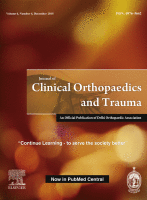A paper about the molecular details of lung cancer is being retracted for repeating datasets and “careless errors” in a pair of figures.
According to the note, the editor of Carcinogenesis wouldn’t have known about the problems if he hadn’t been tipped off that the paper by first author, XiaoJuan Sun — a researcher at Shenzhen Second People’s Hospital in China — shared “significant similarities” with another one of Sun’s papers that was retracted years ago. After the journal investigated the paper, it discovered that the authors had reported the same data as in the retracted paper “without significant additions or amendments,” along with some errors and inconsistencies.
Here’s the detailed note for “The EDA-containing cellular fibronectin induces epithelial mesenchymal transition in lung cancer cells through integrin α9β1-mediated activation of PI3-K /Akt and Erk1/2:”
Continue reading Duplicated data, “careless errors” expire lung cancer paper








